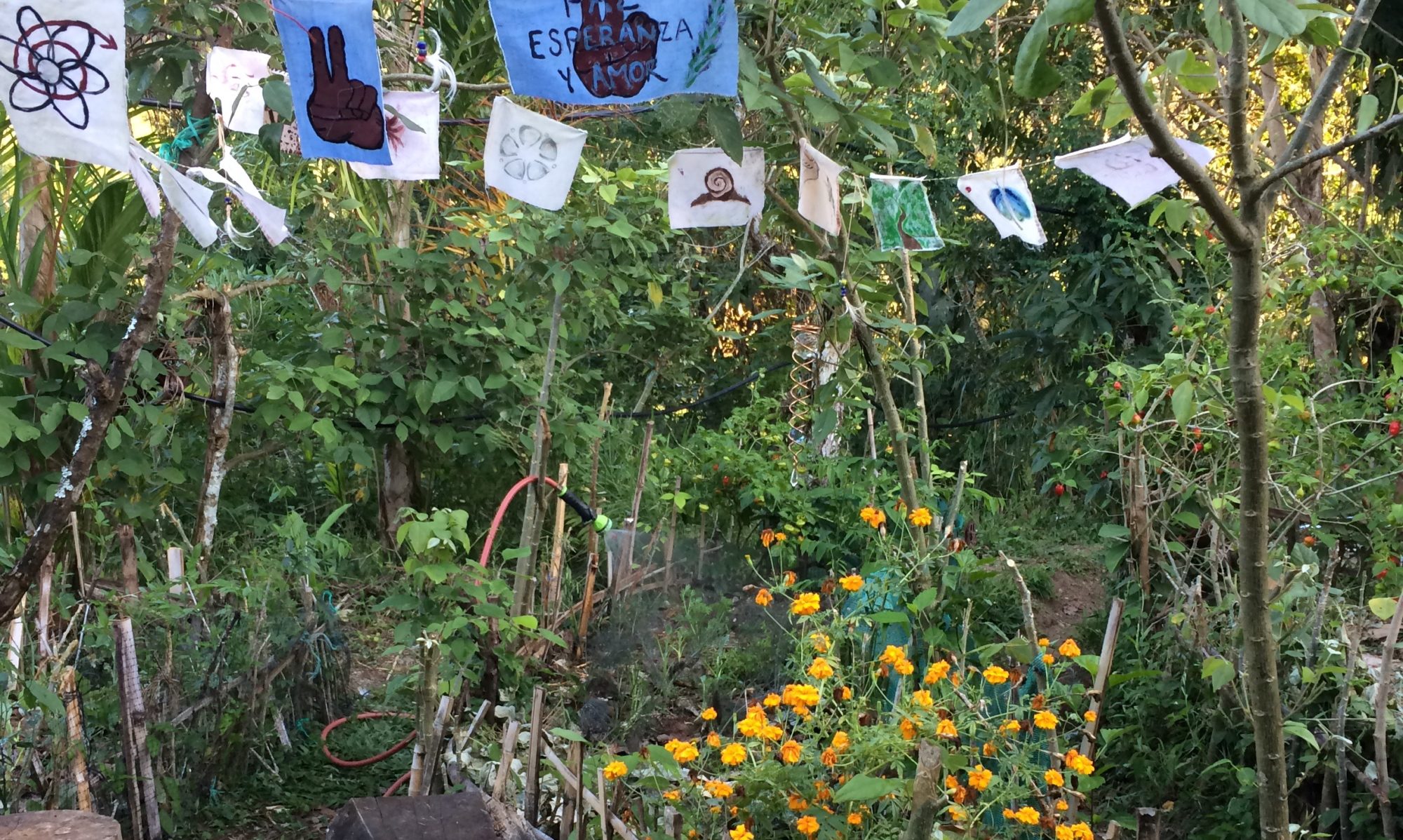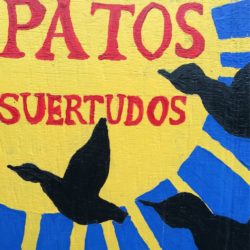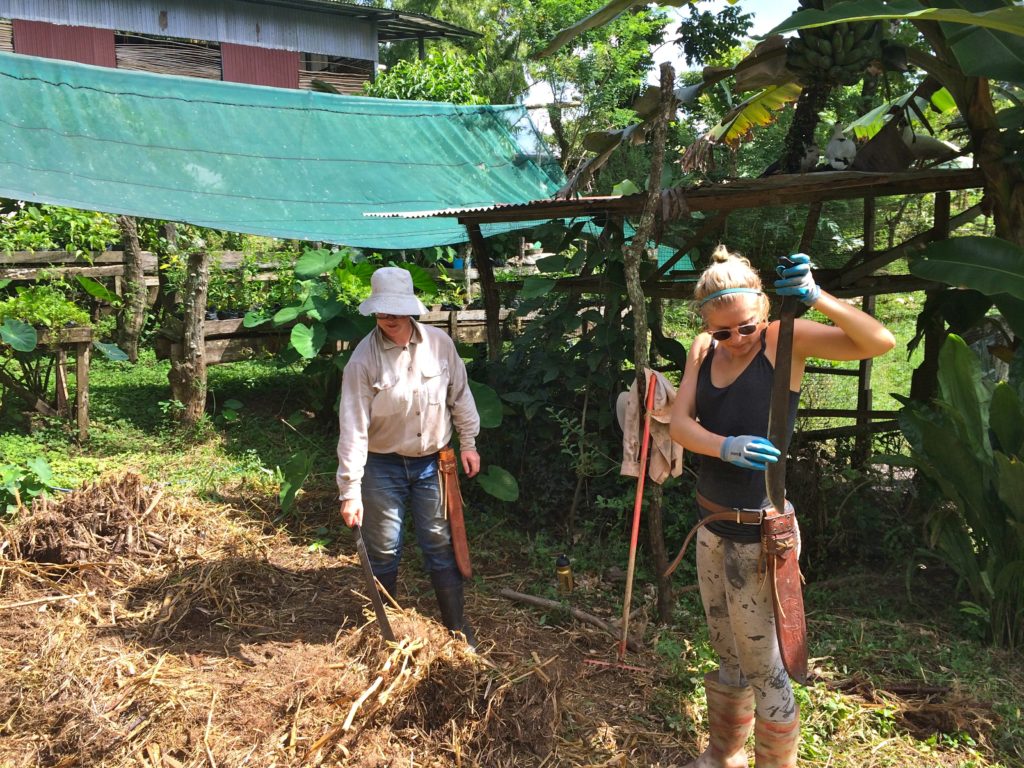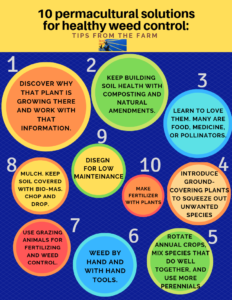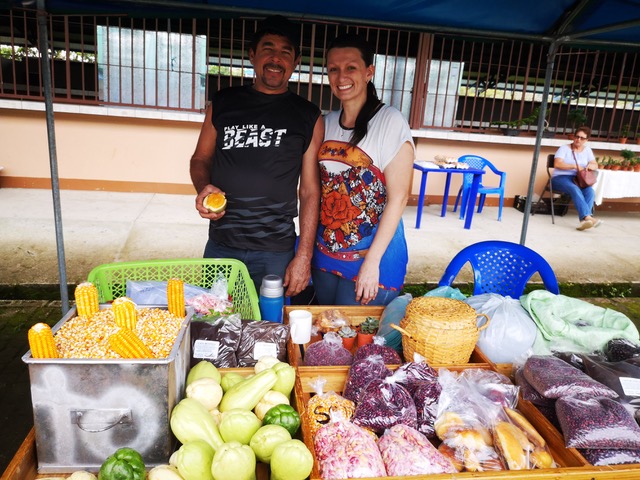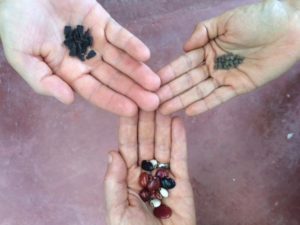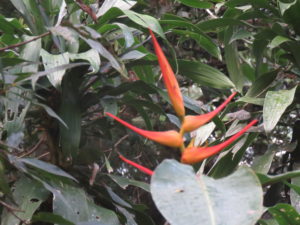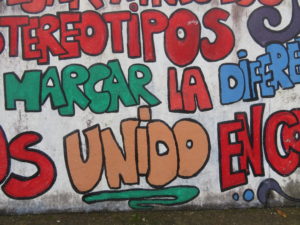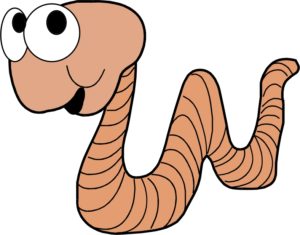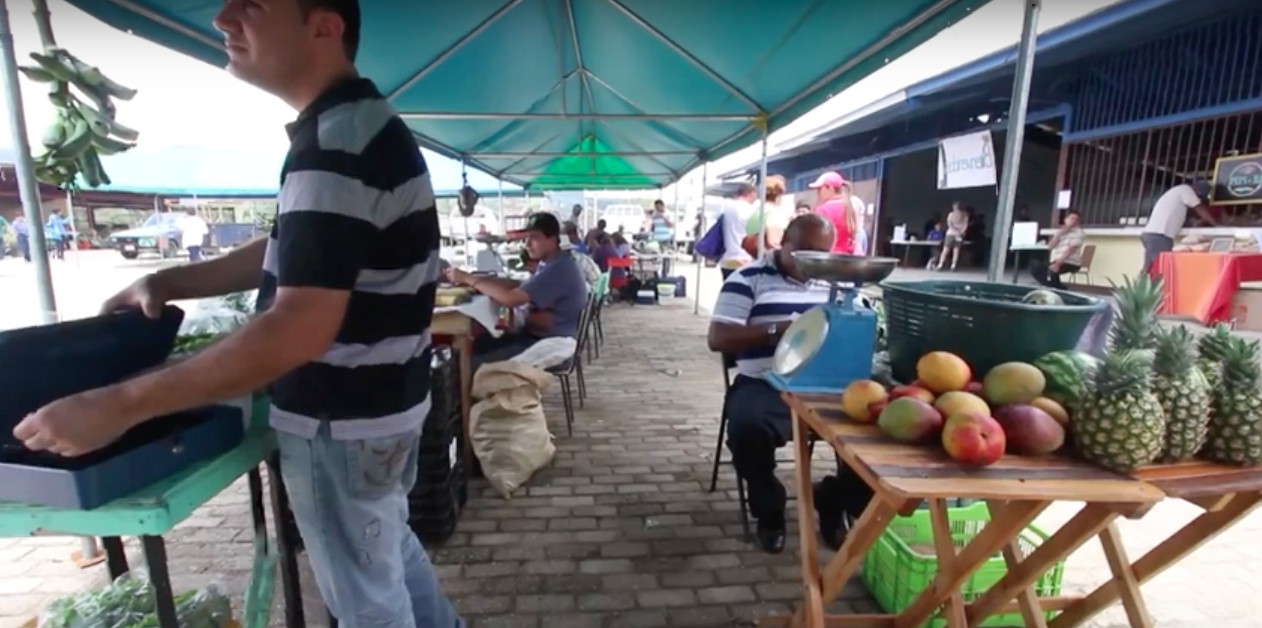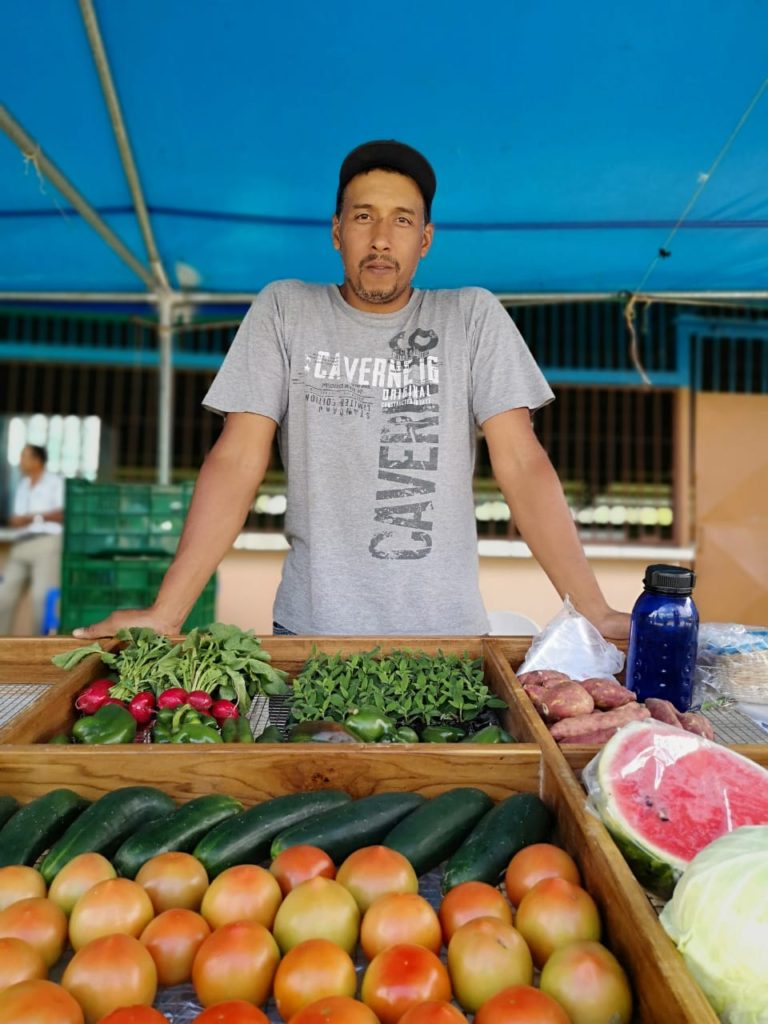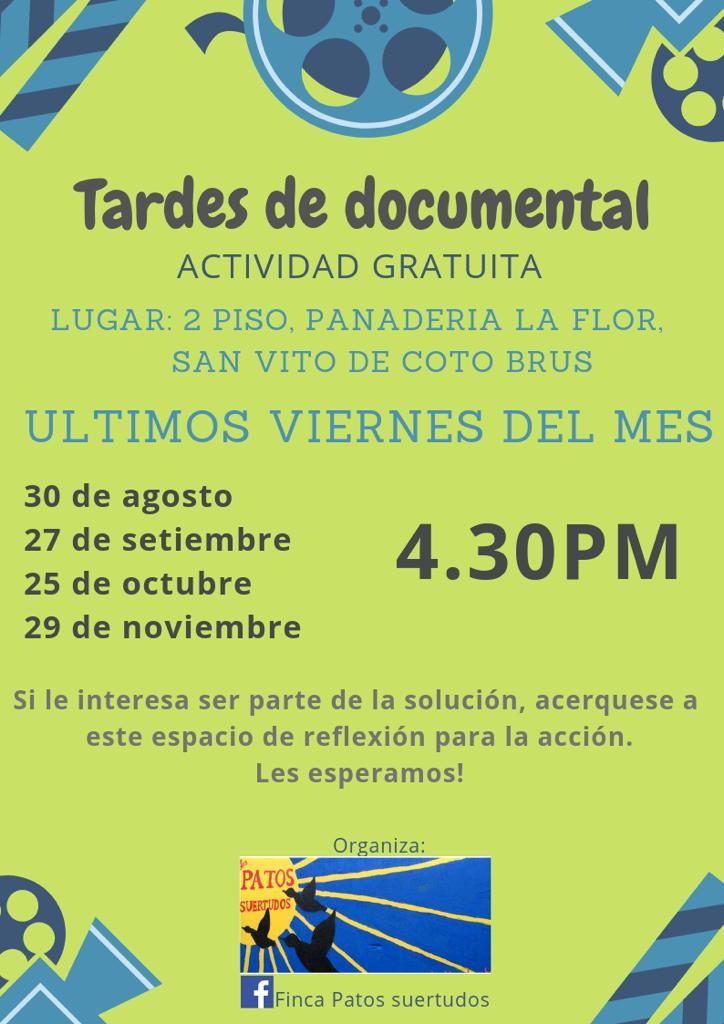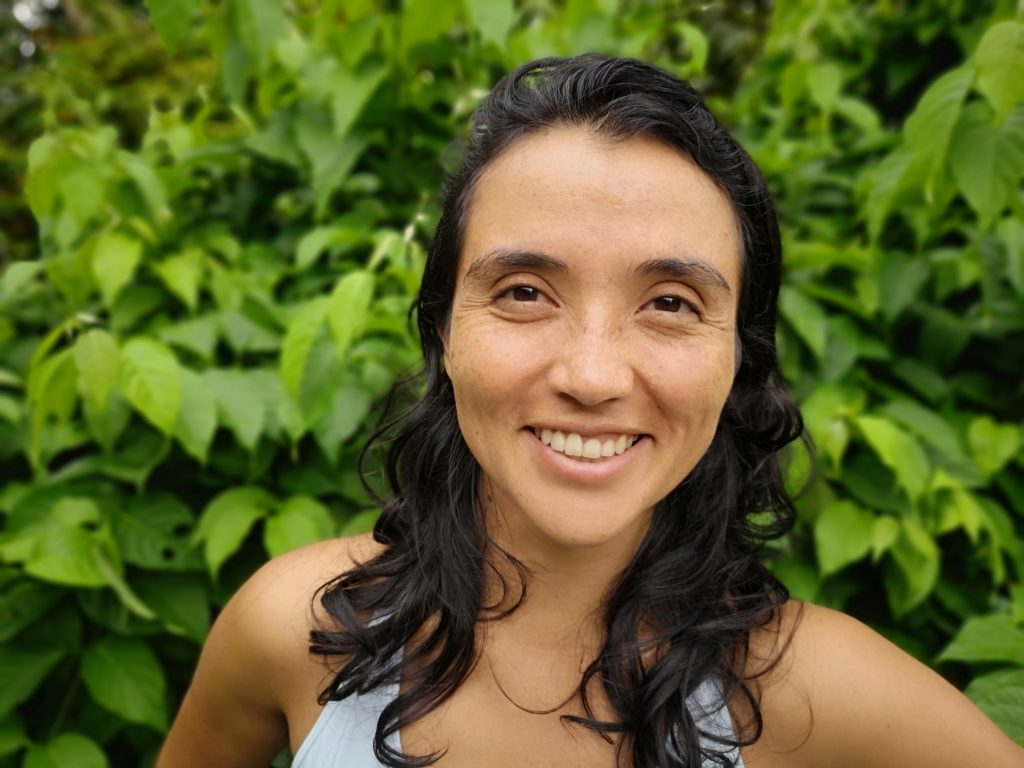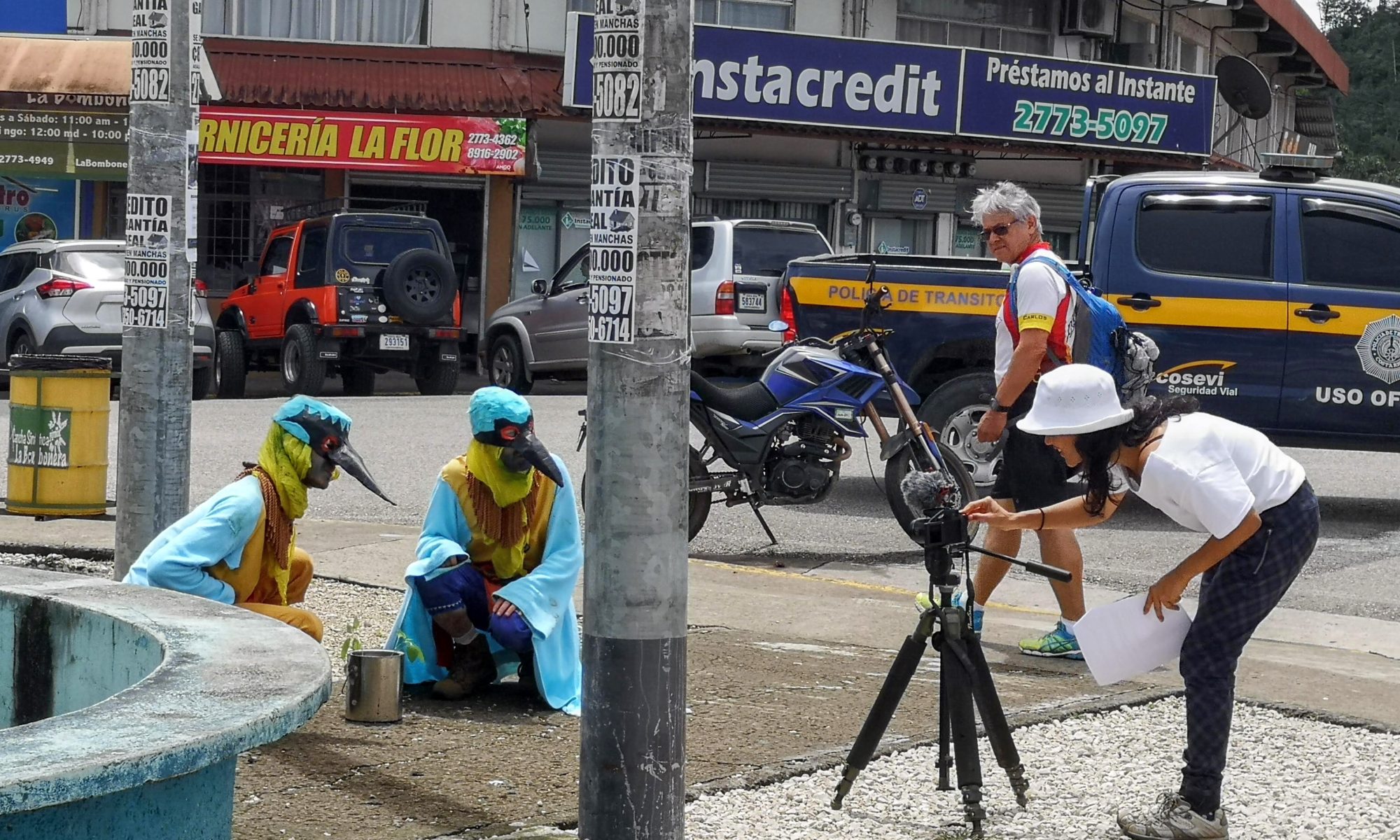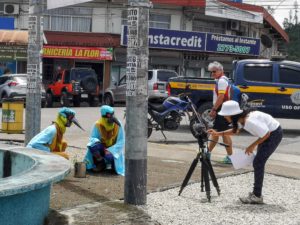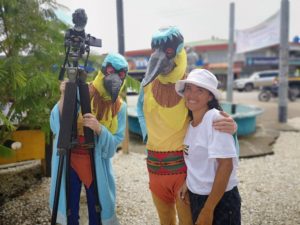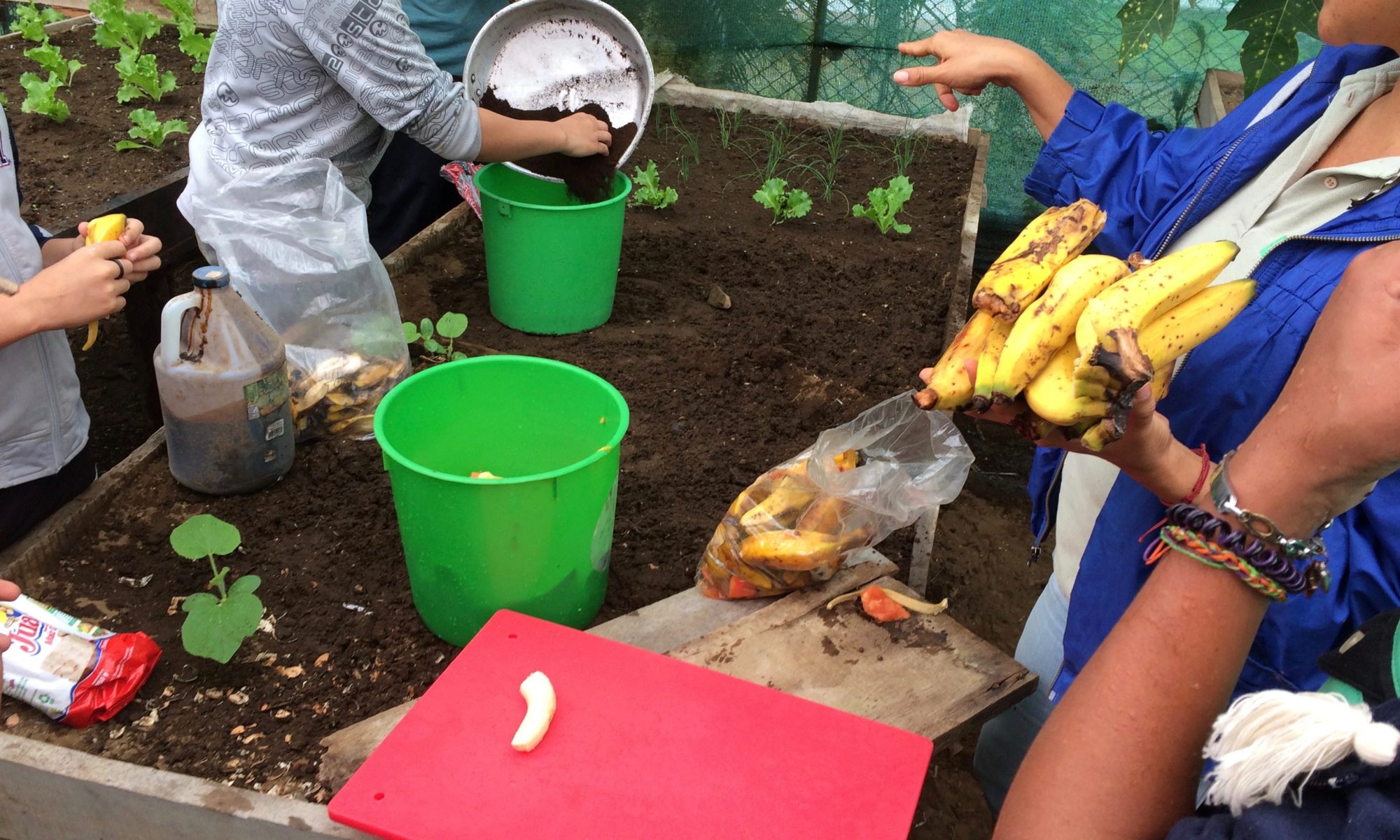10 solutions for healthy weed control:
- Design for low maintenance.
- Keep building soil health with composting and natural amendments.
- Make fertilizer with plants. Pile them up for compost or steep into a compost tea.
- Rotate annual crops, mix species that do well together, and use more perennials.
- Mulch. Keep soil covered with bio-mas. Chop and drop.
- Introduce ground-covering plants to squeeze out unwanted species.
- Weed by hand and with hand tools.
- Use grazing animals for fertilizing and weed control.
- Weeds are the soil’s natural healers and indicators of soil composition. Discover why that plant is growing there and work with that information.
- Learn to love them. Many are food, medicine, or pollinators.
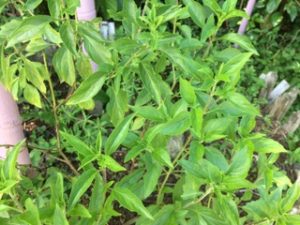
Small and Slow Solutions
Permaculture principles are based upon the laws of nature, so they apply anywhere and everywhere.
Permaculture Principle 9 in Spanish
As we learned with the story of the tortoise and the hare, slow and steady wins the race. An example of this principle is the use of toxic herbicide to kill weeds. Roundup and similar products are aggressively marketed as safe when used according to the directions on the label.
Nothing could be further from the truth.
“But…it is so easy, and I only use a little bit.” You can spray from a bottle or for miles from an airplane, killing anything that hasn’t been genetically modified to resist the toxin. But, it’s a long challenging process to put life back into the soil once it’s gone. From the last application, it will take you three years of using only organic methods to qualify for certification. And still, the chemical will remain, only diluting over time.
Unfortunately, there is no safe way to use a toxin that dissolves in water and seeps everywhere. It is now found in glaciers in the Artic and human breastmilk. Its particles are small enough to pass through the blood brain barrier. It is linked to a host of chronic diseases, from autism and cancer, to dementia. Bayer and Monsanto want you to believe differently so they can continue to profit off the sales, but the truth is out now in court documents. They have always known the negative effects.
In this case, quick and easy comes at a high price.

What price do you put on health of people and planet, on soil not sprayed with toxins compared to that which has not or on food grown with toxins and food grown in living soil loaded with nutrients?
When we see higher prices for organics, we need to realize that market subsidies make toxic food cheap to buy. Taxpayers carry the burden of paying for a system that is making us all sick.
The industrial agriculture model has failed us miserably. Large scale farming robs family farmers of their land and life from the soil.
So now, we need to learn from this giant mistake and start where we are, slow and small to rebuild life in the soil and health in people and planet.
